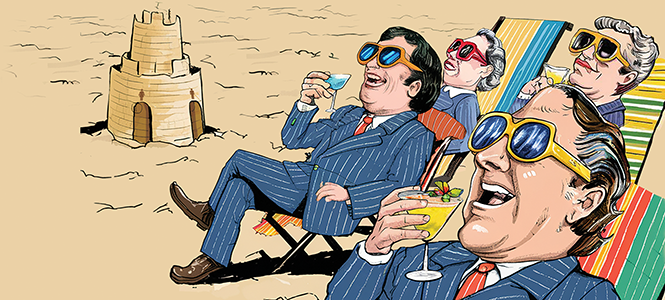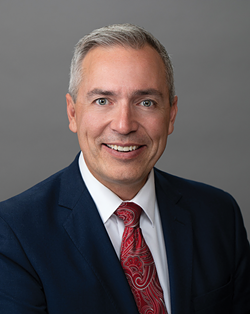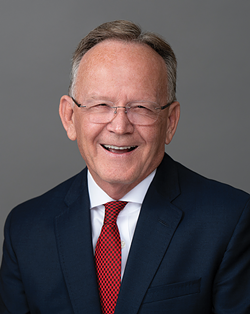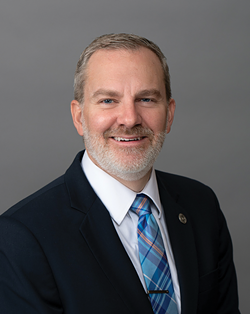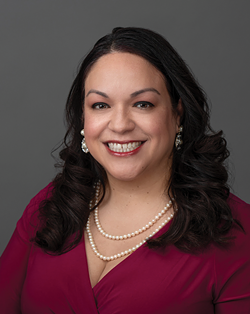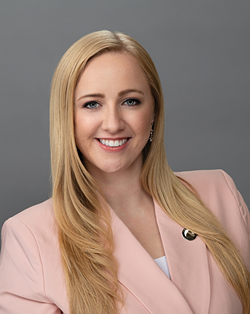The 2024 Utah legislative session was an election-year slog bookended by bathrooms and baseball.
Spring Break
By Benjamin Wood @BjaminWoodCAPITOL HILL—Politics is war, but government is high school.
I'm far from the first observer to draw this comparison, but a school campus remains the best proxy for considering the Utah Legislature, with its fishbowl immersion, tribal cliques, petty jealousies and cyclical nature that sees incoming freshmen working their way up the ladder as a cohort of seniors is replaced every two years.
Where pupils have reading, writing and arithmetic, we in the local political orbit have government operations, revenue and taxation, and judiciary. The House speaker and Senate president are vice principals, the committee chairs are faculty and a corps of thankless support staff keep the lights on. There are long-winded lectures, required reading, daily assignments and everything will be on the final exam.
I found myself thinking about this often while covering the 2024 session, because it occurred to me that I've been doing this for 13 years, the same amount of time that I spent in K-12 classrooms. And like any disillusioned upperclassmen, I'm getting too old for this shit. (Hat tip to the poor souls doing this for even longer than I.)
My first session—kindergarten, as it were—was in 2012, when I was a greener-than-green education reporter for the Deseret News. I made my way up the hill to cover a sex-ed debate and found myself going back day after day because that's where all the action was.
At the end of 45 days, my editor asked for a "20-inch" story recapping what lawmakers had done for schools. I had no conception of column inches—as a millennial reporter, I studied journalism post-internet—and diligently went about interviewing stakeholders and compiling an exhaustive report totaling something like 4,000-plus words. My editor then explained, with a combination of surprise and amusement, that I'd need to cut at least three-fourths of what I'd written.
Education is a perfect beat. It's expansive enough that you never run out of stories to tell and constrained enough that you can mentally wrap your arms around it—attend every state school board meeting, read every school bill, keep tabs on the main players. Later, when I wrote for the Tribune, I was assigned to a two-person team expected to cover all of state government and got burned out pretty quick.
Now at City Weekly, I've settled into a new routine. I spend half the week editing the paper and the other half on the Hill, primarily tracking transportation bills—because it's the biggest issue the state gets the most wrong and with the least amount of scrutiny—and following the debates du jour that dominate the news cycle.
I still don't know how column inches work, but I've written more than 11,000 words on cityweekly.net regarding the 2024 session. What follows is my term-paper attempt to pull all of that reporting together and update it, where necessary, while trimming it down to no more than 2,500 words—and I've already wasted 500.
Running to the Bathroom
For the third year in a row, the Utah Legislature sent anti-transgender legislation to the desk of Gov. Spencer Cox, adding bathroom regulations to the bans on trans athletes and gender-affirming health care of 2022 and 2023, respectively. And like 2023, Capitol leadership decided to front-load the session with these controversial proposals—plus a ban on Diversity, Equity and Inclusion programs, or DEI—diving into the deep end of election-year red meat before settling into more routine deliberations.
"This effort, to protect women, is not something we should take a knee on," said Riverton Republican Sen. Dan McCay, the Senate sponsor of HB257.
The specifics of the bathroom bill shifted several times, and proponents note that it calls for more gender-neutral facilities in state buildings. But over one 24-hour period, Senate leaders were adamant to reporters that anyone behaving appropriately would be free to use the bathroom of their choice and, by the next afternoon, they'd fully reversed that position, iterating that gender-designated spaces are meant to correspond with a person's assigned sex at birth.
"It was never intended for anybody to use any bathroom," McCay said. "This is the way things go in the legislative process. It's never over until you have a final bill that you send to the governor."
But debate over the specific terms of the law ignores the larger question of whether a state law is needed at all. The elected Utah State Board of Education and the Utah High School Activities Association are capable of establishing rules around school sports and facilities, adjudicating conflicts that arise and answering to the public if and when their approach falls short. Associations governing medical professionals can establish (and have established) standards of care. And any aberrant behavior that might hypothetically occur in a public restroom is already addressed by statutes on harassment, assault and indecency. Similarly, Rep. Keith Grover, R-Provo, struggled to explain exactly what his DEI ban is meant to do beyond prohibiting the use of the words "diversity," "equity" and "inclusion" together.
"That's definitely one of the components of the bill," Grover said. "There's lot of other things that it does as well."
Outside of partisan aims, these bills are needless. And in that needlessness, there is cruelty, a point driven home by the actions of state school board member Natalie Cline, whose decision to falsely target the gender identity of a student athlete on social media generated a unanimous storm of criticism on and around Capitol Hill. Virtually everyone in Utah government—from Gov. Spencer Cox to the Midvale City Council—called on Cline to step down, with the House and Senate passing an unprecedented censure resolution that stopped short of impeachment and the Utah Board of Education stripping Cline of her board authority and committee assignments.
"What I think should be done is I think [Cline] should resign. That's the right thing to do—that's the best thing to do," Gov. Spencer Cox said at a mid-session press conference. "Whether or not she's impeached probably is immaterial at this point. That is, in effect, what has happened."
Far from resigning, Cline announced on Feb. 19 that she intends to seek reelection to another term in November.
"I will continue working to protect children against the tsunami of education systems that are actively undermining faith, family and freedom," Cline wrote on Facebook.
Moneyball
In addition to being an election year, 2024 was a low-revenue session for lawmakers with relatively few surplus dollars to spend, particularly compared to recent years that were goosed by federal pandemic spending.
After setting aside some $160 million at the start of the budget process, Senate President Stuart Adams, R-Layton, made a running joke of saying the Legislature would "measure twice and cut once" while weighing the goal of a fourth consecutive year of income tax cuts against the diverse needs for appropriation around education, social services, housing, transportation and other areas of government spending.
"Lowering taxes is the fairest way to reduce the tax burden, promote upward mobility and let Utahns keep more of their hard-earned money," Adams argued. "Thanks to a legacy of foresight, responsible planning and fiscally conservative policies, we have proven it is possible to provide for current needs while laying the groundwork for growth and advancement for future generations."
But the cries of legislative poverty collided with ambitious plans to build not one but two professional sports venues in Salt Lake City, with Utah seeking to lure the National Hockey League to a revamped entertainment hub around the Delta Center and to land a Major League Baseball expansion team in what is currently a sprawling and underproductive Rocky Mountain Power campus on the west side.
A combined $2 billion price tag—spread over many years, largely through bonding and increment financing incentives, but with some new taxes—generated sticker shock around the state, with residents, advocates, journalists (especially those who don't regularly make the trek up the Hill) and some lawmakers questioning why the common taxpayer should be "helping billionaires" at the same time that other critical funding areas are pinching pennies.
But much of the criticism overlooked the nuances of tax increment financing, a convoluted method of subsidization that sees debts leveraged against private investment and paid down with a portion of the new tax revenue that would otherwise be assessed against new development, offsetting the massive upfront costs involved in building a new urban neighborhood from scratch (in the case of MLB on North Temple) or in revitalizing the dilapidated and incongruous areas of west downtown (in the case of an NBA/NHL district).
"They're saying that taxpayer money is going to some private company to do this, but the inverse is actually true," said Sen. Lincoln Fillmore, R-South Jordan. "It is private money that is coming in to subsidize a public stadium that is then leased back to a private party."
The most noteworthy discussion of this approach occurred not on the House or Senate floor, but in the Senate president's daily media availability on Feb. 22, after reporters pressed leadership to justify the prioritization of professional sports when issues like affordable housing and homeless services were getting short shrift. Republican senators described how capital cities around the country had fallen into cycles of contraction and deterioration, and how shoring up the downtown area would sustain Salt Lake City as the state's cultural and business hub.
"You can't just look at the social programs," Adams said. "You have to look at how to drive an economy, too, because when people make money, they pay taxes."
The conversation then pivoted to Senate Minority Leader Luz Escamilla, D-Salt Lake City, to offer a counterpoint to the majority strategy. Instead, she echoed everything her Republican colleagues had described.
"The type of investment that we're talking about is going to completely change the west side," she said. "No one has ever invested in the west side—ever. Ever. And if it's bringing a team to bring that level of investment, I can tell you we are uniting forces with our community, we want to see the investment, we want to see the [State] Fairpark continue to succeed. But we have a criminal element right now in the west side, in the Jordan River area, and no one is going to clean it. If bringing $3 billion into that area is going to change that, I want to see it."
Lawmakers ultimately approved a pair of bills that relied even less on new taxes. That result appeared to put to bed rumors (threats?) that the Utah Jazz might leave the city for a new location in the Draper suburbs, with owner Ryan Smith posting on social media that downtown Salt Lake City is the "heart" of the state.
"Our efforts are not about an arena," Smith wrote, "it's about revitalizing a downtown that desperately needs investments."
Road Blocks
Lawmakers made few changes to the billions spent each year on transportation. Among the additions for 2024, the Legislature approved $50 million for transit at Point of the Mountain, $5 million for expansion of the Provo Airport, $15 million for a control tower at the St. George Regional Airport and $500,000 to study transportation needs in the Power District, where the proposed MLB ballpark would be located.
A bill to allow newly licensed drivers to travel with one non-family passenger stalled out in the Senate but is likely to return in the future as its sponsor, Morgan Republican Rep. Kera Birkeland, said she was motivated by a citation her teenage daughter received. And a bill to create a small exception to the state's ban on automated traffic enforcement (aka "photo cop") for use in school and construction zones never received a hearing, despite similar legislation passing out of the Senate and a House committee last year.
One bill that did pass is HB430, which creates "transit innovation grants" for cities to test new service routes and demonstrate ridership demand. It also requires the Utah Transit Authority to regularly report on how a city's UTA contribution is being used to serve that city's transit riders.
The bill's sponsor, Riverton Republican Rep. Candice Pierucci, repeatedly noted that the fast-growing areas of Bluffdale, Riverton and Herriman do not host a single UTA bus stop. But rather than pursue new funding for new services, her initial proposal sought to allow cities to retain some of the taxpayer dollars they contribute to UTA in order to stand up services within their boundaries. "We've had cities answer the call as we work to encourage them to address housing, and more and more of them have moved toward high-density housing," Pierucci said. "And with that, our transit needs are not keeping up."
But Pierucci's premise ran into cold, hard reality, with UTA executive director Jay Fox testifying in committee that those three cities combined account for roughly 2% of Salt Lake County's transit funds, while Salt Lake City taxpayers contribute 30%, effectively subsidizing all transit services in the suburbs. Salt Lake City has also elected to fund transit above and beyond the standard local option sales tax percentages set out in state code. (While Pierucci is correct about bus service, on-demand transit is available in the southwest corner of the county, offering a connection to Trax and FrontRunner stations in South Jordan and Draper, respectively.)
While HB430 still moves existing money around in lieu of increases, the bill was ultimately amended to a form that drew neutrality, if not support, from public transportation stakeholders. "Transit is the answer," Fox said. "UTA is the answer to economic growth. We are the answer to building communities, the answer to environmental sustainability, better air quality and the path to safeguarding our future. Rep. Pierucci's bill recognizes the demand and need for more transit along the Wasatch Front."
Under another bill, HB449, the Utah Department of Transportation (UDOT) will be charged with treating cyclists like people instead of small cars. The bill calls for cyclist and pedestrian safety to be considered in road plans and lists design interventions that could be used to that effect, like lane barriers, median islands and curb extensions. Those tools are broadly known as "traffic calming," as they dramatically enhance safety without any meaningful effect on vehicle flow. But a specific reference to "traffic calming" was stripped from the bill's language at the request of UDOT, which traditionally measures the success of a roadway solely based on car volumes.
"Some people at UDOT like that term—some don't," said UDOT deputy director Peter Asplund.
But the biggest transportation news arrived from outside the Capitol, with reporting out of Boise that an application for federal funding to study restored passenger rail service between Idaho, Utah and Nevada had been improperly filed and, as a result, excluded from a historic round of transit funding in December. Idaho transportation officials acknowledged the error, but a companion proposal submitted by UDOT was also excluded for as-yet-unknown reasons.
The Federal Railroad Administration (FRA) released its own long-term plans for Amtrak service, which could see trains from Salt Lake City to Portland and Seattle via Boise and to Los Angeles via Las Vegas and tripling the amount of daily train service to Denver.
The FRA's timeline for those changes is currently estimated at 15 years. A UDOT spokesperson did not respond to multiple requests for comment, but Gov. Spencer Cox expressed support for expanding passenger trains. "I believe that rail can solve a lot of our nation's problems," he said. "I lament that we're the most prosperous, powerful nation on earth, and we're the ones that can't figure that out."
Extracurricular Activities
A few more notable bills and developments from the 2024 legislative session.
• The new Utah State Flag will take legal effect this month after an effort to repeal its redesign was dead on arrival. A hearing replayed the hits from a now 6-year-old debate, with supporters of the traditional flag arguing the new design is "woke," "erases history" and is part of a Marxist plot to "dethrone God and destroy capitalism."
• Organized labor won against a transparent attempt to choke unions out of existence by requiring recurring votes for reauthorization, among other burdensome rules. The sponsor was perhaps too clever by half, attempting to carve out an exception for police and firefighters' unions, only to face a wall of solidarity as first responders rejected the special treatment, standing shoulder to shoulder with fellow labor organizations like the UEA.
• A "Don't Say Gay"-style bill prohibiting Pride flags and other forms of expression in classrooms was rejected by the House in a 32-39 vote. But on the final day of the session, supporters twice tried to resurrect the legislation by hijacking the text of an unrelated bill. Both of those attempts failed.
• One of the most heated floor debates was on a bill imposing new reporting requirements on the district attorney for Salt Lake County and creating a process for the state Supreme Court to appoint an alternate prosecutor. Republicans claimed that criminals are freely walking the streets of Salt Lake City and that the "fabric of society" is being allowed to deteriorate. Democrats countered that the bill is a "disgrace" and motivated by vindictive aims. The bill passed largely along party lines.
• Utah's ranked choice voting pilot will limp to its 2026 finish line after narrowly surviving a repeal attempt based largely on vibes. Critics of the alternative balloting method appealed to notions of "election integrity," arguing that confusion and discarded ballots showed the pilot's failure, while representatives from cities—including Salt Lake—testified that the experience had been positive in their areas. An atypical assortment of senators hit the magic number of "no" votes, allowing the program to run its course.
More by Benjamin Wood
-
‘Festival street,' Green Loop and transit-oriented density anchor latest SLC plans for west downtown.
Arrested Development
- Apr 17, 2024
-
Former Salt Lake City mayor and celebrated Utah Democrat Ted Wilson dies at age 84.
Ted Led
- Apr 11, 2024
-
Salt Lakers are about to miss an opportunity for reconnection over and under I-15.
Small Lake City
- Mar 27, 2024
- More »
Latest in Cover Story
Readers also liked…
-
Forget the family pedigree—Robert F. Kennedy Jr should not be the next president of the United States
Trojan Horse
- Jun 21, 2023
-
Women decry harassment and toxic culture at St. George auto dealership
Men at Work
- Oct 11, 2023


